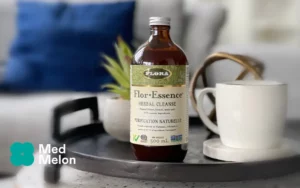Scientific Names of Rosehips: Rosa canina L. (predominant species in commerce) and other Rosa spp. [Fam. Rosaceae]
Forms:
Aqueous extract of whole rosehips cut and dried; rosehip extracts
Traditional Usage:
– Acne (astringent tea)
– Antioxidant
– Bone and Joint Disorders
– Colds
– Colic
– Chills
– Digestive Disorders
– Diuretic
– Edema
– Eyewash
– Gastric-juice Deficiency
– Gastrointestinal Disorders
– Influenza
– Infections
– Laxative (whole rosehips with pectin)
– Scurvy
– Urinary Tract Disorders
– Vitamin C Deficiency
Overview:
The fruit of dog rose, Rosa canina L. [Fam. Rosaceae], is a fleshy red hip that is rich in Vitamin C and carotenoids and can be used for the prevention and treatment of vitamin C and A deficiency and scurvy. The Rosaceae family contains many of the most important edible fruits grown in temperate areas including apple, pear, peach, plum, cherry, apricot, almond, nectarine, prune, hawthorn, loquat, quince, raspberry, blackberry and strawberry. The fleshy hips of roses are no less edible and nutritious than these more popular fruits. Rosehip tea was traditionally used for preventing and treating colds, chills and influenza-type infections, as well as for treating other infectious diseases. Rosehips were taken as a tonic and the juice or tea was taken to increase the body’s resistance against disease, for treating gastric-juice deficiency, for bowel disorders and to aid digestion. The German Commission E also lists rosehips for treating biliary complaints and colic, urinary tract disorders, edema (water retention) and for strengthening the kidneys. The hip tea is also listed as a diuretic and as a treatment for bone and joint disorders and as an astringent and eyewash. The pectin in the hips makes them effective as a mild laxative, similar to apples for helping regularity. The seeds themselves are also listed by the German Commission E as a treatment for kidney and urinary tract disorders, for edema, as a diuretic and for bone and joint complaints, although it acknowledges that the efficacy of these indications has not been proven. Modern studies show that rosehip extracts inhibit lipid oxidation in vitro and in clinical studies patients suffering from osteoarthritis reported that physical symptoms declined. Data from a randomised controlled trial indicate not only that pain significantly declined but also flexion of the hip improved in the active treatment group.
Active Ingredients:
Rosehips contain: Up to 1.7% L-Ascorbic acid as the essential constituent; pectins; tannins; sugar, plant acids; red and yellow pigments, especially carotenoids, mainly different isomers of rubixanthin, lycopene, beta-carotene, beta-chryptoxanthin, zeaxanthin and lutein. Rosehips also contain many other flavonoid-type antioxidants such as anthocyanins and proanthocyanidins. Rosehip seeds contain: Up to 10% fixed oil; up to 0.3% essential oil; traces of vitamin C; and inorganic substances.
Suggested Amount:
Rosehips can be taken as a tea with the recommended dosage of one to three cups per day, using one teaspoonful (3.5g) of dried hips per cup of boiling water. A tea can also be made using 1-2g of the coarsely powdered seeds. Boiling water is poured over this and extracted for 10-15 minutes. As a diuretic, several cups of the seed tea are drunk throughout the day.
Drug Interactions:
None known
Contraindications:
None known
Side Effects:
None known. Rosehip seeds: The German Commission E states that there are no known risks to drinking the seed tea. Eating the seeds in quantity, however, can cause cyanide poisoning and there has been one reported death of a man dying from eating a small cupful of apple seeds.
References:
Hodisan T, Socaciu C, Ropan I, Neamtu G. 1997. Carotenoid composition of Rosa canina fruits determined by thin-layer chromatography and high-performance liquid chromatography. J Pharm Biomed Anal. 1997 Nov; 16(3): 521-8.
Rossnagel K, Willich SN. 2001. Rosae pseudofructus. Gesundheitswesen. 2001 Jun; 63(6): 412-6. German.
Trovato A, Monforte MT, Forestieri AM, Pizzimenti F. 2000. In vitro anti-mycotic activity of some medicinal plants containing flavonoids. Boll Chim Farm. 2000 Sep-Oct; 139(5): 225-7.
User TE. 1967. A research upon the vitamin C amounts of rosehips, and their native consumption in central and northern Anatolia, Turkey. Turk Hij Tecr Biyol Derg. 1967; 27(1): 39-64.
Wichtl M (ed). 1994. Rosae pseudofructus – Rose hips (English translation by Norman Grainger Bisset). In Herbal Drugs and Phyto-pharmaceuticals. CRC Press, Stuttgart, pp. 424-426; Rosae pseudofructus “semen” – Rose hip “seeds”, pp. 427-428.




